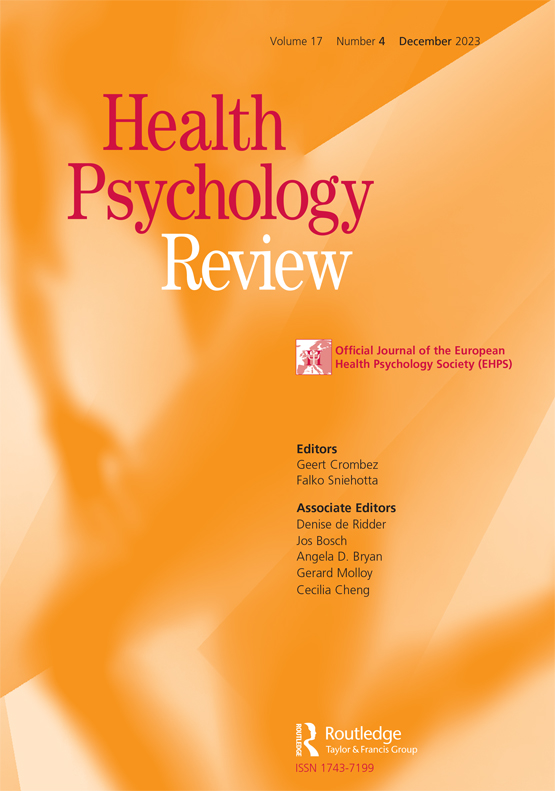Good mental health in people with intellectual disabilities: a systematic review.
IF 9.7
1区 心理学
Q1 PSYCHOLOGY, CLINICAL
引用次数: 0
Abstract
While mental disorders have been broadly researched in people with intellectual disabilities (ID), comparatively less attention has been given to the conceptualisation of good mental health for this population. To capture existing concepts, definitions and measurement approaches of good mental health a systematic literature review was conducted following PRISMA guidelines. The search was carried out in eleven databases, using various synonyms of (i) intellectual disability, (ii) mental health, (iii) wellbeing, (iv) definition, and (v) assessment. A total of 2,046 datasets were identified, of which 37 met the inclusion criteria and were analysed using reflexive thematic analysis and content analysis. Results show four main themes: (1) environment, (2) absence of mental illness, (3) physical health, and (4) psychosocial functioning. The fourth was the most dominant theme and was further divided into five sub-themes: (1) emotionality, (2) interpersonal relations, (3) realise own potential, (4) personal resources, and (5) overall appraisal of life. Our findings reveal different conceptualisations of wellbeing, which is a vital part of good mental health, but highlight a notable research gap in the actual definition and conceptualisation of good mental health for people with ID.智障人士的良好心理健康:系统综述。
虽然对智障人士(ID)的精神障碍进行了广泛的研究,但对该人群良好心理健康概念的关注却相对较少。为了了解良好心理健康的现有概念、定义和测量方法,我们按照 PRISMA 指南进行了系统的文献综述。我们使用以下各种同义词在 11 个数据库中进行了搜索:(i) 智障、(ii) 心理健康、(iii) 健康、(iv) 定义和 (v) 评估。共确定了 2,046 个数据集,其中 37 个符合纳入标准,并使用反思性主题分析和内容分析进行了分析。结果显示有四大主题:(1) 环境;(2) 无精神疾病;(3) 身体健康;(4) 社会心理功能。第四个主题是最主要的主题,并进一步分为五个次主题:(1) 情绪化,(2) 人际关系,(3) 发挥自身潜能,(4) 个人资源,以及 (5) 对生活的总体评价。我们的研究结果揭示了幸福感的不同概念,而幸福感是良好心理健康的重要组成部分,但也凸显了在智障人士良好心理健康的实际定义和概念化方面存在着明显的研究空白。
本文章由计算机程序翻译,如有差异,请以英文原文为准。
求助全文
约1分钟内获得全文
求助全文
来源期刊

Health Psychology Review
PSYCHOLOGY, CLINICAL-
CiteScore
21.30
自引率
0.00%
发文量
28
期刊介绍:
The publication of Health Psychology Review (HPR) marks a significant milestone in the field of health psychology, as it is the first review journal dedicated to this important and rapidly growing discipline. Edited by a highly respected team, HPR provides a critical platform for the review, development of theories, and conceptual advancements in health psychology. This prestigious international forum not only contributes to the progress of health psychology but also fosters its connection with the broader field of psychology and other related academic and professional domains. With its vital insights, HPR is a must-read for those involved in the study, teaching, and practice of health psychology, behavioral medicine, and related areas.
 求助内容:
求助内容: 应助结果提醒方式:
应助结果提醒方式:


